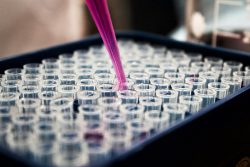Navigating Life Science, Pharmaceuticals, and Biotechnology: What Sets Them Apart?
The Differences Between Life Science, Pharmaceutical, and Biotechnology
In the realm of science and innovation, terms like life science, pharmaceutical, and biotechnology are often used interchangeably, leading to confusion about their distinct meanings and applications. Each of these fields plays a crucial role in advancing healthcare, agriculture, and environmental sustainability.
In this article, we’ll delve into the nuances of life science, pharmaceutical, and biotechnology to clarify their differences and highlight their unique contributions to society.
What is Life Science?
Life science, also known as biological science or biology, is a broad field encompassing the study of living organisms and their interactions with each other and their environments. It includes various disciplines such as:
- Biology: The study of living organisms, their structure, function, growth, evolution, distribution, and taxonomy.
- Biochemistry: Focuses on the chemical processes and substances that occur within living organisms.
- Genetics: Investigates genes, heredity, and genetic variation in organisms.
- Ecology: Explores the relationships between organisms and their environments.
- Physiology: Examines the functions and mechanisms of living organisms and their parts.
Life scientists conduct research to understand fundamental biological processes, develop new technologies, and improve human health, agriculture, and conservation efforts.
What are Pharmaceuticals?
Pharmaceuticals, often referred to as Pharma, is a sector within the healthcare industry dedicated to the discovery, development, manufacturing, and commercialization of drugs and medications. Key aspects of pharmaceuticals include:
- Drug Discovery: Involves identifying and designing molecules that have the potential to treat or prevent diseases.
- Clinical Trials: Rigorous testing conducted on humans to evaluate the safety and efficacy of new drugs.
- Regulatory Approval: Processes overseen by regulatory agencies to ensure that drugs meet safety, quality, and efficacy standards before they can be marketed and sold.
- Manufacturing: Production of pharmaceutical drugs in accordance with strict quality control standards.
Pharmaceutical companies play a vital role in bringing innovative therapies to patients, addressing unmet medical needs, and improving public health outcomes.
What is Biotechnology?
Biotechnology harnesses biological systems, organisms, or derivatives to develop products and technologies that benefit society. It intersects with various scientific disciplines, including molecular biology, genetics, biochemistry, and engineering. Key areas of biotechnology include:
- Medical Biotechnology: Focuses on using biological systems and techniques to develop diagnostics, therapeutics, and vaccines for treating diseases.
- Agricultural Biotechnology: Involves the genetic modification of crops and livestock to enhance productivity, nutritional value, and resistance to pests and diseases.
- Industrial Biotechnology: Utilises biological processes and organisms to produce biofuels, bioplastics, enzymes, and other industrial products.
- Environmental Biotechnology: Addresses environmental challenges such as pollution, waste management, and sustainable resource utilisation through biological solutions.
Biotechnology companies leverage cutting-edge research and innovation to create solutions for healthcare, agriculture, energy, and the environment.
Key Differences Between Life Science, Pharmaceutical and Biotechnology:
While life science, pharmaceuticals, and biotechnology are interconnected, they have distinct focuses and objectives:
- Life Science: Primarily concerned with understanding the fundamental processes of living organisms and their environments.
- Pharmaceuticals: Concentrates on the discovery, development, and commercialisation of drugs for therapeutic purposes.
- Biotechnology: Utilises biological systems and processes to develop products and technologies across various sectors, including healthcare, agriculture, and industry.
In Conclusion
In summary, life science, pharmaceuticals, and biotechnology are integral components of scientific research and innovation. While they share commonalities and often collaborate, each field has its unique scope, methodologies, and applications. Understanding these differences is essential for stakeholders in academia, industry, and policymaking to effectively leverage the strengths of each discipline and drive progress in science and technology for the betterment of society.
To learn more about what we can offer to the life science, pharmaceutical, and biotechnology industries, click here, or contact a member of our team.
